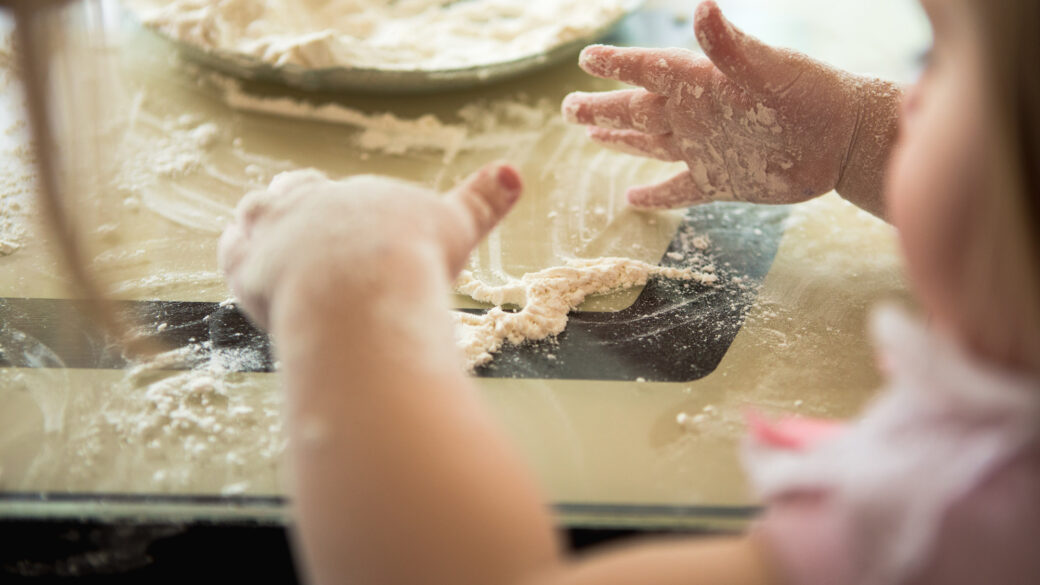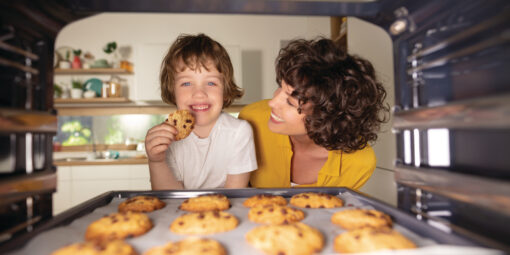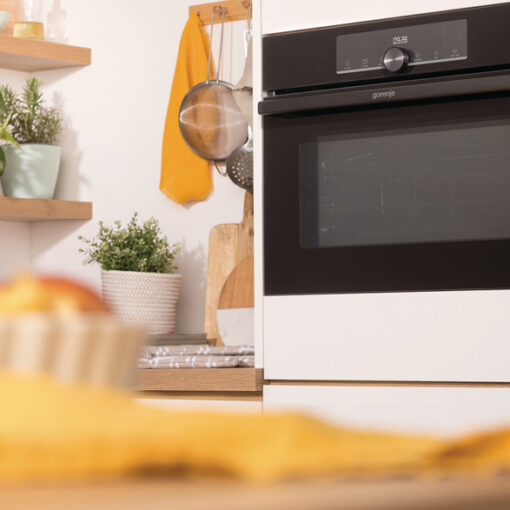Cooking with kids

Most kids love to cook: it’s hands on, it’s messy, and there’s plenty of room for creativity, not to mention a sense of achievement at the end. It is fun!
1. Take your time
Expect everything to take longer than it usually would. So set aside extra time for cooking and keep in mind, particularly for younger children, that the journey is as much fun as the destination!
2. Plan ahead
Select an appropriate recipe, one that they’ll enjoy and that involves plenty of tasks suited to their age. Make sure you have all the ingredients and equipment at the ready. If necessary, do some pre-preparation before you ask them to join in.
3. Make a mini-cooking station
Seat them at the table or counter, away from the heat, so you can whip up dinner with minimal interference.
Give the kids a step stool for a good view, and give them their own dedicated space at the counter free of glassware, eggs, meat, fish, and sharp tools (including peelers and micro¬plane graters!). They’ll feel more in control and involved. And keep them busy with the safe stuff to keep them from grabbing your chef’s knife or raw chicken out of boredom.
4. Let the mess happen
Cooking is a messy business – and when kids are involved there’ll be even more. Exercise a bit of damage control by putting a plastic tablecloth down on the floor or a tray underneath their work station. But ultimately you’ll all have more fun if you just relax and then clean up together at the end. Enlisting kids in the cleanup will make the experience more pleasant for everyone — and teach them another essential life skill.
5. Talk much
As you’re cooking, talk about the ingredients and their origin, about cooking processes and techniques. Be honest. Beef is from a cow. Pork is from a pig. Apples are ready in the fall. And do not forget about the hygiene: Ensure they wash their hands beforehand and between touching raw and cooked or ready-to-eat foods.
6. Don’t go Gordon Ramsey on them
Engage the kids only as much as they want to be. Stuffing ravioli can be fun for a minute, but after five tries, it might get a bit dull for the little ones. And don’t expect culinary perfection.
Accept the fact that not all kids like to cook. Your non-cooking kids can still contribute to the meal by washing produce, rinsing cans, setting the table, and tasting each dish to determine if it needs additional seasoning.






